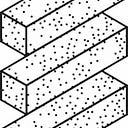Visible and invisible power structures in communities
A couple of months ago some of us in the enkel collective went to Brisbane for the New Economy conference. The highlight for me was our meeting with Joshua Vial from Wellington’s Enspiral, an entrepreneurial community that we have studied closely when setting up enkel.
One of many things we discussed was hidden power structures in decentralised or “leaderless” organisations. Even if we all talk about this and how important it is to model our collectives on other structures than the classic top-down hierarchy, Joshua pointed out that there are still always power structures in any community — visible or hidden.
In Enspiral they acknowledge this and regularly talk about it, and after our chat with Joshua I started to think about such power structures in enkel (and most of them probably found in any community).
Here are some that came to mind:
- Cultural, biological and social factors like ethnicity, gender, religion, age, sexuality, or disability are obviously huge — consciously or unconsciously.
- A person’s history in the collective. A co-founder has for ex very different power than a new member.
- Money is always important in our society, and whether a member has a lot of money or no money will play a role in how that member is perceived by the community.
- Time is an interesting factor. Some members can spend lots of time in a community, while others can’t spend much time at all. Some people can spend time during weekdays, while others can do nights or weekends.
- Energy. Some people seem to have limitless energy and passion, and others not. There are many reasons for this, among them personality (extroversion vs introversion) and mental/physical health.
- Charisma is a sign of power in our society, and of course also in a community.
- Network. Some people have vast networks locally and/or globally and can pull in people and resources from these to the advantage of the community. The ability (or not) to influence ones networks are of course relevant here.
- Skills and specialties. Everyone has unique skills and specialties which are important to surface, map and make use of in any community.
- Linked to skills and specialties are intelligences. In our society, high IQ is seen as a great asset in life, but there are also other forms of intelligences, as Howard Gardner’s concept of multiple intelligences shows.
10. Experience is another big one. Both gained in work and life. Experienced community members have to balance their wisdom and insights with having an open “beginner’s mind” and also the tendency we often have to think that “we’ve tried it before and it didn’t work”.
11. Family bonds. Blood is thicker than water and communities with members who are related will have power structures influenced by these bonds. Friendships and interactions between members outside the community are of course also important.
12. Belonging to other organisations. Members’ affiliations, work or membership in other organisations will also have an impact. For instance a member who works for say the military, a big corporate or a church will be seen as having more or less power (consciously or unconsciously as with all these factors).
13. Organisational power and title is something we in enkel have tried to avoid as much as possible by letting everyone decide their own title. But legally we need to have at least three directors, and hence titles can’t be removed.
14. An interesting factor is whether or not a member has created something visible in or outside the community. Some people driven by action/doing create more visible results than others. This could for example be achievements like having raised money, organised a community event, or created a new system within the organisation.
15. Geographic location is one of our main imbalances in enkel. People who live or work far away from were we meet have less power than those who are close. But on the other hand, distance can also be used for power.
16. Access to information. We try to be transparent and give all members access to as much info as possible, but there are still emails, phone calls, meetings and other informal information flows that are virtually impossible to make transparent. I.e. different members have access to different information.
17. Members who know more members normally have more power, but members who know less members can have another type of power — of the more mysterious kind.
18. Overview, meta-insight is a factor we’ve spoken a lot about in enkel. Some members will always have more insights about how everything and everyone fits together, see links between people and therefore be able to connect them etc.
Some of these listed factors can’t be changed, or are virtually impossible to change, but many can be tackled by systems, processes and cultural hacks. I think step one in this work is (like Enspiral) to surface and acknowledge them. That’s often a good start.
Any other factors come to mind?
